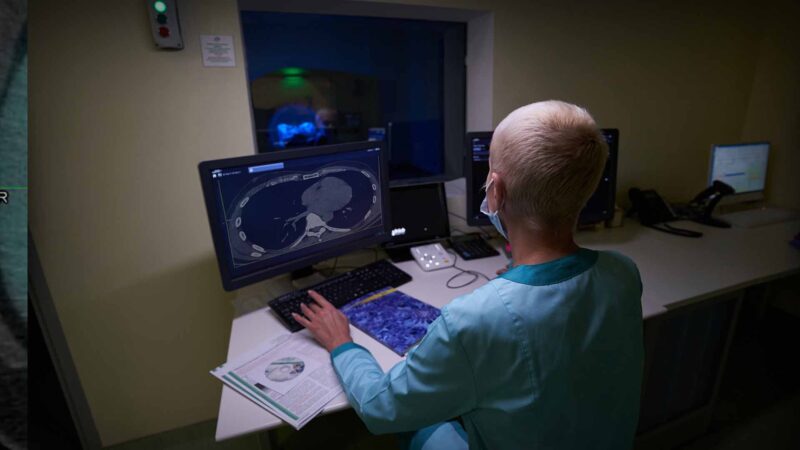Collaboration between industry, research, universities, government, and organisations is crucial for vaccine development and addressing public health needs, with a focus on overcoming barriers, accelerating access to technologies, and enhancing public-private partnerships. This is emphasised by the program committee chair Jenny Herz and a program committee member Professor Jodie McVernon of the Inaugural Vaccine Value Chain Conference, who invited Australian Health Journal to attend.
For the first time, key decision-makers and thought leaders from government, industry, academia, NGOs, and representatives from the immunisation community converged in a 2 day conference in Sydney hosted by Biointelect, highlighting the transformative potential of collaborative innovation.
In talking to Australian Health Journal, Ms Herz spoke about the end to end value chain of vaccine development involving discovery, research, product development, clinical trials, regulatory and reimbursement processes, and community implementation, with a focus on understanding the community’s perspectives and needs. Collaboration between industry and academic research is crucial for overcoming challenges in vaccine development and commercialisation.
She reflects how the pandemic spurred innovation in vaccine development and clinical trials, revealing the need to address gaps and explore new pathways for accelerating access to technologies and medicine, with more venture capital available for funding oncology products than infectious diseases.
According to the Inaugural Program Committee, there are many aspects involved in the value chain of vaccines from discovery through to implementation. However, the understanding of all the challenges, barriers, and levers to streamline the value chain across all key stakeholders is fragmented and sometimes siloed in Australia’s federated system.
During the COVID-19 pandemic novel vaccines were developed globally in record time. Australia’s public health ecosystem pulled together, but the gaps became clear. Since then, there have been many lessons learnt and significant investment by jurisdictional and Federal Governments, the private sector and philanthropy into different parts of the ecosystem.
While Australia has strengths in many areas, such as discovery research, the knowledge and experience to translate discoveries effectively, to truly impact the health of the community, requires data availability, resources and know-how all along the value chain. Access to funding and skilled workforce remains fragmented across our ecosystem, and this affects Australia’s ability to capitalise on research strengths in infectious diseases and immunology.
Professor McVernon and Ms Herz talk about collaboration between public and private sectors being essential to address unmet needs, and funding for innovation to come from NGOs, philanthropy, or public money if it is not attractive to the private sector.
The consensus of opinions coming from the conference speakers and delegates was that Australia needs to take a national approach and present itself as a strong player in the international community to find its relevant place in the value chain.
You Might also like
-
25 years of non-indexation of nuclear medicine impeding access & affordability
The President of the Australasian Association of Nuclear Medicine Specialists (AANMS), Associate Professor Sze Ting Lee spoke with Australian Health Journal about the following:
Usual levels of nuclear medicine services in Australia each year
Current levels of nuclear medicine services in Australia
How changing demographics in people moving to regional areas has impacted access to nuclear medicine services
The nuclear medicine workforce including trainees
The key recommendations from the pre-budget submissionIn the lead up to the Australian Federal Budget in May 2023, Australian Health Journal reached out to peak health industry bodies to hear about their priorities, either noted in pre-budget submissions lodged with Federal Government in January 2023 or in recent forums such as the Strengthening Medicare Taskforce.
-
The world of AI avatars in dementia care
Dementia care is one of the critical issues facing the aged care industry. About 500,000 Australians currently live with the brain disorder condition, and this is tipped to rise to 1.1 million in a generation.
How to effectively provide quality care for people living with dementia was a key element of the royal commission into aged care, which found the complex care required was an ongoing challenge for the industry.
-
Ensuring stringent quality standards in the lifecycle of medical devices
Dr Jasjit Baveja is the Associate Director of Policy at the Medical Technology Association of Australia (MTAA), where she oversees regulatory affairs, clinical code of practice, procurement, industry policy, reimbursement, and advocacy. With over 20 years of experience in the medical device regulatory space, Dr Bavej’s expertise lies in providing educational opportunities for regulatory professionals in Australia to ensure continuous learning and professional development. She collaborates closely with the Therapeutic Goods Administration (TGA) to run workshops that provide invaluable experience, networking opportunities, and skill enhancement.


